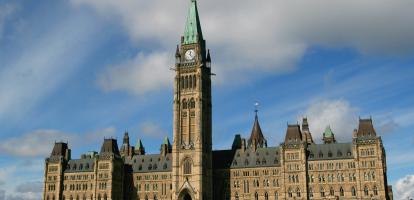One of the first steps Joe Biden took upon assuming office was to end the Trump administration’s blocking of the appointment of a new director-general of the World Trade Organization. With the United States now on side, WTO members quickly elected Ngozi Okonjo-Iweala from Nigeria as its new head.
Although not known to the general public (the heads of these intergovernmental bodies rarely are), she has impressive credentials: A Harvard and MIT grad and former managing director of the World Bank, she served twice as Nigeria’s finance minister between 2003 and 2015 while holding U.S.-Nigerian dual citizenship. She was given high marks for her performance in those roles.
Her election is an important step forward for the WTO, which has been in crisis mode for some time – even before Donald Trump’s arrival. Restoring the organization’s sense of purpose and functionality – critical for order and stability in global trade – will be a monumental task for Ms. Okonjo-Iweala. Apart from tough challenges related to climate change, pharmaceuticals, subsidies, state enterprises – to list just a few – the new director-general faces deep-seated institutional problems.
For starters, there are now 164 WTO member countries with hugely disparate interests and views of what the organization should be doing. A lack of common purpose pervades. The WTO never recovered its footing since the collapse of the ill-fated Doha Round negotiations about 10 years ago. It has been progressively losing momentum, standing still while international trade moves ahead more rapidly than ever.
Ms. Okonjo-Iweala arrives at the WTO facing these existential factors. It’s like being elected president or prime minister in a country full of internal strife, saddled with a legislature that can’t enact laws and a court system that doesn’t function. Sadly, that’s the WTO picture today.
Let’s start with the legislative arm, the collective WTO membership (the General Council) responsible for negotiating new trade agreements. There are so many disparate interests and so many different agendas that a sense of common purpose has been lost. Maybe it can never be regained. But a first step to getting the WTO back on track as an effective negotiating forum, able to tackle urgent global problems such as climate change, digital commerce, pandemic vaccines and pharmaceuticals, to name a few, requires structural changes in the organization’s architecture. Without them, it’s hard to envisage much progress.
The 1994 agreement creating the WTO requires all participating governments to sign on to the entire package as a single undertaking, without being able to pick and choose, whether it be trade in goods, border measures, services, rules on intellectual property and so on. All WTO member countries share in the rights and obligations under the agreement on an equal footing. This has made for a sound multilateral trading order.
But the way the WTO framework works involves a serious flaw. If a few like-minded countries want to negotiate a new trade arrangement on, say, carbon-free goods, but lack the support of all the other WTO members, they can conclude the new agreement but – and here’s the rub – they have to extend the same benefits, equally and without restriction, to the entire WTO membership. In other words, WTO parties that sign these “plurilateral” agreements – i.e., less than universal ones – must give the same benefits to free riders, those countries that stayed outside the negotiations and didn’t sign on to their obligations but stand to reap their advantages.
This is a huge disincentive to those governments that want to move ahead and not be bogged down by others. Finding a solution to this outdated all-or-nothing negotiating paradigm and restricting the benefits under these plurilateral agreements to those that sign on are vital if the WTO is to come to grips with urgent and pressing problems in international trade. It is one of the most important challenges Ms. Okonjo-Iweala will face in the coming days.
Then there’s the WTO’s judicial arm, which resolves trade disputes among member countries and consists of a panel system (the trial level) and an appeal court known as the Appellate Body. The Trump administration’s ire was directed at the latter. Insisting that it had far outstepped its mandate and gone off the rails, the Trump administration refused to sign off on Appellate Body appointments.
Without that body in operational mode, trade disputes can’t reach final disposition. The result is that the dispute settlement system – once a crowning achievement of the international community – is now dysfunctional.
Even under Mr. Biden, the U.S. position on the Appellate Body will not change until “system concerns” are addressed by the membership. Restoring the health and well-being of the judicial arm will be the second major challenge for the new director-general.
Despite these daunting problems, all is not bleak. Notwithstanding its continued blocking of Appellate Body appointments, there is still good news in renewed U.S. engagement in WTO matters, presaging a return to its historic leadership role. On structural problems and improving the multilateral trading system generally, the European Union just released a comprehensive set of thoughtful ideas. Canada has brought together a number of WTO members in the Ottawa Group, which has offered useful and creative reform suggestions.
Hopefully, some of these ideas will gain traction among WTO member governments. That would be a big help to the new director-general as she enters a fraught – but not entirely unhopeful – situation in Geneva.
Published in the Globe and Mail
Lawrence L. Herman, a former Canadian diplomat, is counsel at Herman & Associates and senior fellow of the C.D. Howe Institute in Toronto.





